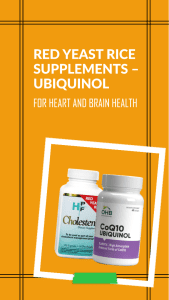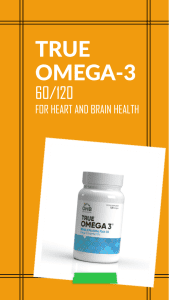
Share
Welcome to the Optimal Health Bridge blog! Today, we’re diving deep into the world of fish oil. It’s one of the most popular supplements in health and wellness—and for good reason. But with all the talk around it, it’s easy to get confused. What really makes fish oil good for your heart? Is it something you should be taking? Let’s sort the facts from the fishy myths and find out what you really need to know.
What Is Fish Oil?
Let’s start simple. Fish oil comes from fatty fish—not fried fish sticks, but the kind that are full of healthy fats. Here are some examples:
- Salmon
- Mackerel
- Sardines
- Anchovies
These fish are packed with omega-3 fatty acids, the real stars inside fish oil.
Main Ingredients in Fish Oil
- EPA (Eicosapentaenoic Acid) – Helps reduce inflammation and supports heart function.
- DHA (Docosahexaenoic Acid) – Great for your brain, eyes, and also your heart.
- Triglyceride and Ethyl Ester Forms – These are the main types of omega-3s in supplements. Triglyceride form is easier for your body to absorb.
- Fat-Soluble Vitamins – Some fish oils include vitamin A and D as a bonus.
You can take fish oil in different forms:
- Capsules or soft gels (easy to take)
- Liquid (you can mix it into drinks)
- Fortified foods (like omega-3 eggs!)
Omega-3s and Heart Health
So how does fish oil help your heart? The omega-3s in fish oil, especially EPA and DHA, do a lot to support your heart. Here’s how:
- Improve cholesterol and triglyceride levels
- Reduce inflammation in the body
- Help blood vessels stay strong and flexible
- Support steady heart rhythms
- Help control blood pressure
Fish Oil May Help With:
- High blood pressure
- High triglycerides
- Plaque buildup in arteries (atherosclerosis)
- Irregular heartbeats (arrhythmias)
- Coronary artery disease
- Stroke risk
- Heart failure, especially after a heart attack
Studies have found fish oil can help reduce heart problems, lower bad cholesterol, and even lower the chances of dying from heart disease. It’s like giving your heart a loyal teammate.
Top 10 Heart Benefits of Fish Oil
- Reduces triglycerides—sometimes by up to 30% with higher doses
- Helps prevent sudden heart problems by keeping heart rhythms steady
- Lowers blood pressure slightly, especially in people with high blood pressure
- Reduces long-term inflammation in the body
- Keeps arteries flexible and working well
- Slows down the buildup of plaque in arteries
- Lowers heart failure risk in people with heart problems
- Improves heart rate variability—this is a good thing!
- Lowers the chance of future heart issues when combined with healthy choices
- Can help lower stress, which also helps your heart
It’s not magic, but fish oil offers great support for a healthy heart.
Fish Oil Myths You Should Stop Believing
Let’s clear up some common fish oil myths:
- “Everyone needs fish oil.” – Not true. If you eat enough fatty fish, you may not need a supplement.
- “More is better.” – Nope. Too much omega-3 can sometimes cause harm. Stick with balanced doses.
- “It stops all heart attacks.” – Unfortunately, no. It lowers some risks but doesn't make you immune.
- “All fish oils are the same.” – Quality makes a big difference. Don’t buy cheap, low-grade fish oil.
- “Eating fish and taking a pill are the same.” – Not quite. Cooking changes nutrients. Pills have measured amounts.
- “It works right away.” – Fish oil takes time—weeks or even months—to show benefits.
- “It’s totally safe.” – It’s mostly safe, but it can thin your blood. Talk to your doctor before taking it if you're on medication.
- “It replaces medicine.” – Definitely not. Fish oil helps, but it’s not a substitute for prescriptions.
- “If I eat healthy, I don’t need it.” – Maybe, maybe not. Depends on how much omega-3 you’re getting.
- “It’s all hype.” – Science actually shows many real benefits when fish oil is used the right way.
How to Pick a Good Fish Oil Supplement
Looking at a wall full of supplements can be overwhelming. Here’s what to keep in mind when picking the right one:
1. Check EPA and DHA Levels
Look at how much omega-3 you’re actually getting. A good supplement should provide 500–1,000 mg of EPA and DHA combined per serving.
2. Form Counts
Triglyceride form is easier for your body to absorb. Look for this on the label.
3. No Fishy Taste
A good fish oil shouldn’t smell or taste like a fish market. If it does, it might be low quality or old.
4. Certified and Tested
Look for seals from groups like:
- IFOS (International Fish Oil Standards)
- USP (U.S. Pharmacopeia)
- NSF International
These make sure the product is clean, pure, and strong.
5. Keep It Fresh
Fish oil needs to be stored properly. Make sure it comes in a sealed, dark container and store it somewhere cool and dry.
6. Buy from Trusted Companies
Choose a brand you trust—like us at Optimal Health Bridge! We focus on high-quality omega-3 products that are well-tested and made with care.
Should You Take Fish Oil?
Here’s a quick review:
- Fish oil has omega-3s (EPA and DHA), which help your heart.
- It can lower triglycerides, support your heartbeat, and fight inflammation.
- Fish oil works best as part of a healthy lifestyle.
- Not all fish oils are equal—choose wisely!
Still not sure? We’re here to help. At Optimal Health Bridge, we care about your health and make it easy to take smarter steps with your wellness.
Ready to Try Fish Oil?
Check out our high-quality omega-3 supplements at OptimalHealthBridge.com. They’re trusted, effective, and backed by science.
If you have questions, feel free to reach out to us. We’re just a message or phone call away!
Thanks for learning with us today! Take care of your heart, stay curious, and we’ll see you next time!
—The Optimal Health Bridge Team










